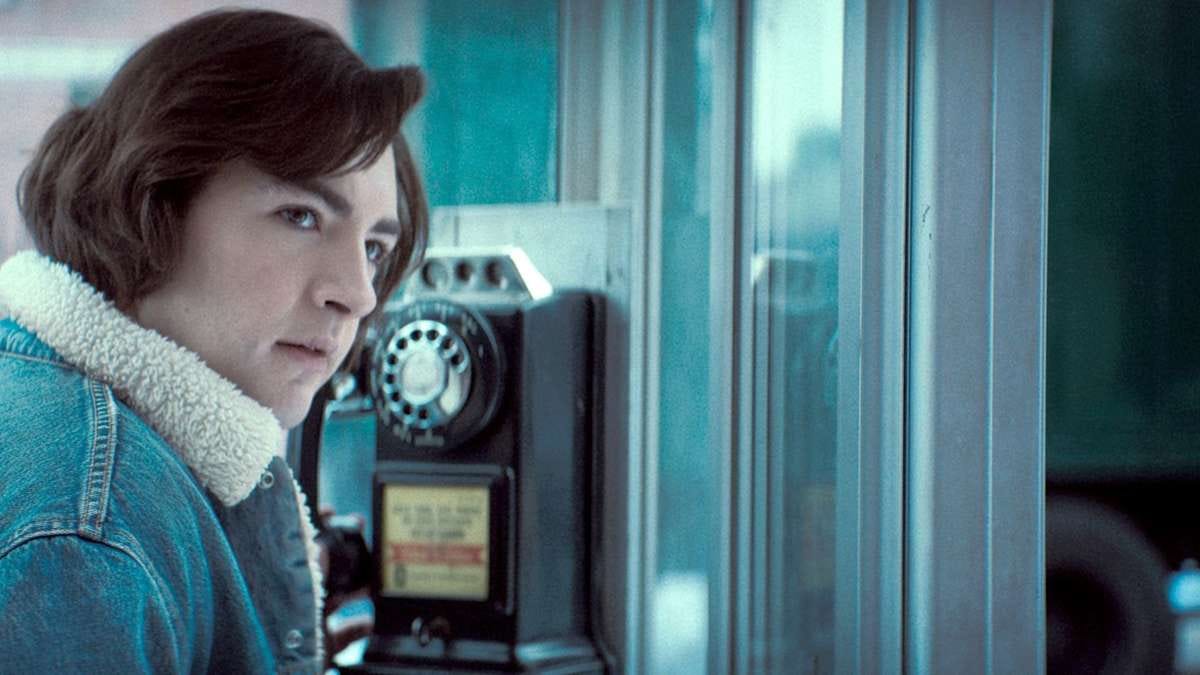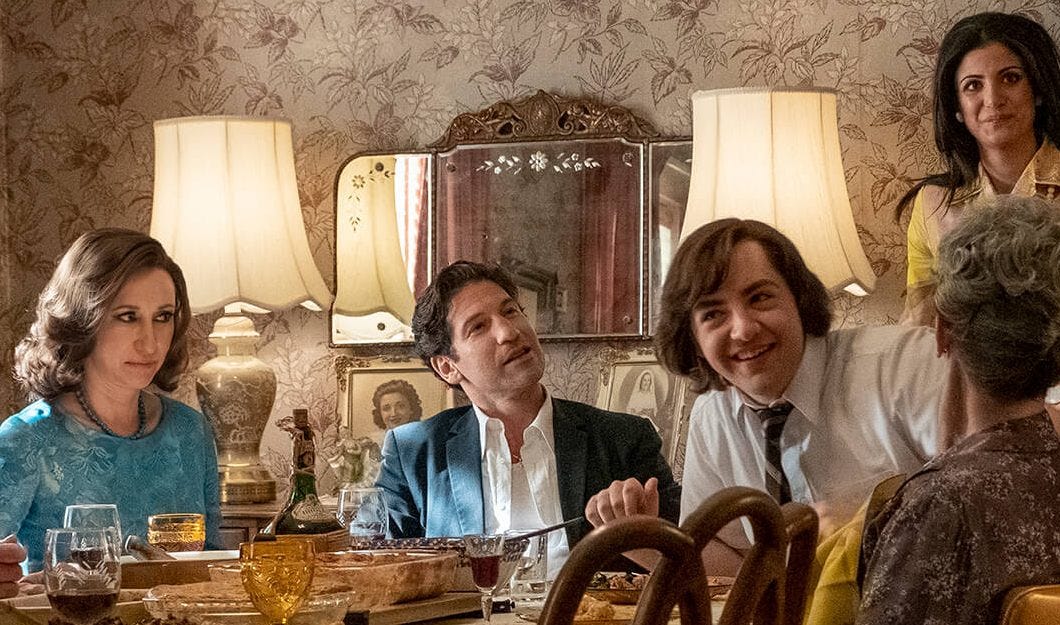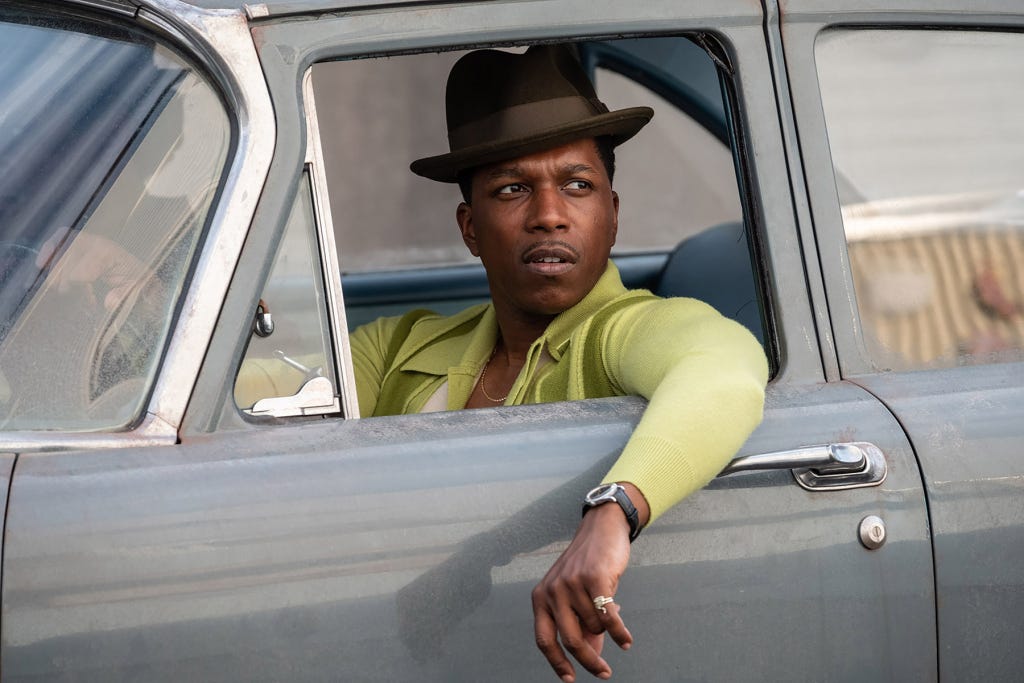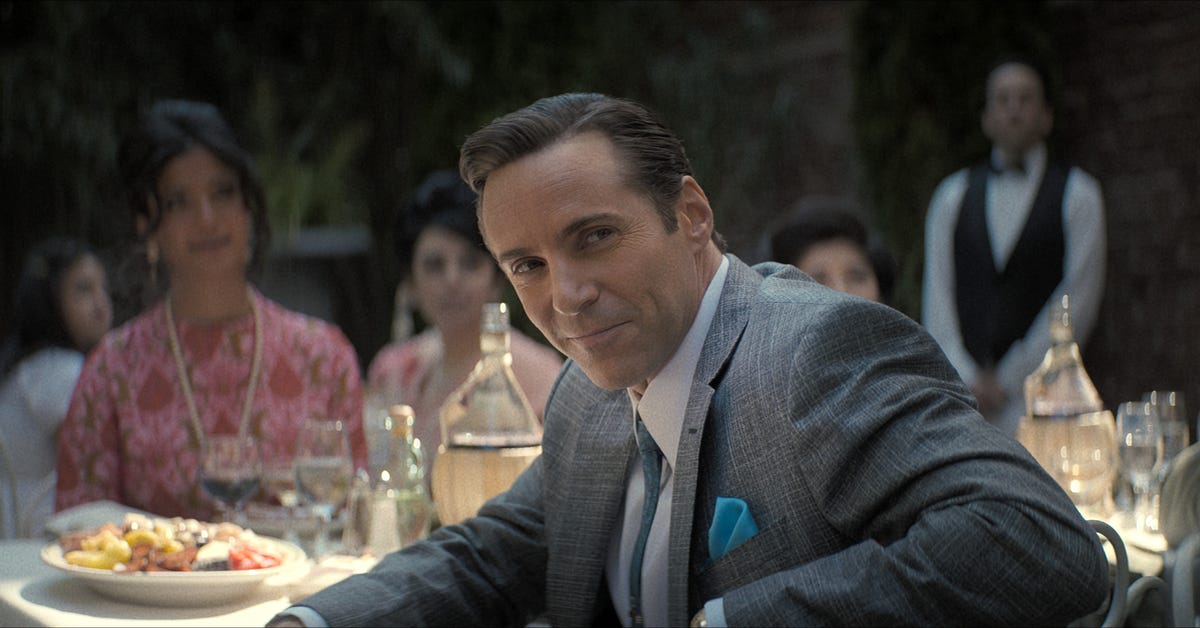Family Guise
"The Many Saints of Newark" revisits and retunes "The Sopranos"

The Nut Graff: “The Many Saints of Newark” (in theaters and on HBO Max) is pretty much everything you might hope for from a “Sopranos” prequel. You could even say there’s a family resemblance.
******************************
I like going into a movie cold, and so I sat down for a recent press screening of “The Many Saints of Newark” – in theaters and on HBO Max starting today – knowing only that it was a stand-alone prequel to “The Sopranos.” The film is set in 1967, during the riots that tore the title city in two, before leaping ahead to the early 1970s, where the teenage Tony Soprano starts to come more clearly into focus. He’s not the movie’s central figure – as per the title, that would be Dickie Moltisanti (Alessandro Nivola, in a role and a performance that feels like a long-overdue breakthrough), the most charismatic mobster in the neighborhood and a father figure to the kid. But as I watched the relationship grow and fray between the two, I found myself fascinated by the young actor playing Tony – how he seemed to capture the hunched forward tilt of James Gandolfini’s grown Tony Soprano, and the sad, not-yet-resigned look behind his eyes. The sense that a much-missed actor and his most famous role had somehow been bodied into another man raised the hair on the back of my neck. Was I seeing a ghost?

You doubtless already know the answer: I was seeing the son, Michael Gandolfini, who at 22 gives a performance that muddies the lines between acting, gimmickry, and genetics. Is he a great actor? I have no idea. But this is a great performance, and not just because it rests on our complicated fondness for a character and the man who played him. The younger Gandolfini, who was 14 when he found his father dead of a heart attack in an Italian hotel room in 2013, has said in interviews that he only recently watched the HBO crime series that ran from 1999 to 2007. It’s possible that what started as a way for Michael to know James better became a commitment to understand Tony once the actor grasped the difference between the two. So he captures the frustration and sensitivities of the future mob boss with a lumbering grace that might be intuition or might be technique or might be some kind of cellular memory. Whatever, it’s terribly moving.
Do you need to have seen “The Sopranos” to enjoy “The Many Saints of Newark”? Not really, but then you’d miss the film’s secondary pleasures: The reptilian stare of the young “Uncle Junior” Soprano, played by Corey Stoll with blood cooling in his veins; a vision of Silvio (an unrecognizable John Magaro of “First Cow”) pre- and post-toupee; the insight that Livia Soprano (Vera Farmiga), a sociopathic mother figure for the ages, once bore an uncanny resemblance to her son’s future wife Carmela.

The director, Alan Taylor helmed nine “Sopranos” episodes back in the day (along with some “Mad Men” and “Game of Thrones” since), and the script is by Lawrence Konner and series creator David Chase. It’s a very smart piece of work that, oddly, owes as much to the films of Martin Scorsese as to the world Chase built over six appalling, satisfying seasons. It’s not just the appearance of Ray Liotta – Henry Hill from “Goodfellas” himself – in a generous double role as Dickie’s vile father, “Hollywood” Dick Moltisanti, and Dick’s twin brother, Sal, turned bookish and Buddhist while serving a life sentence in prison. It’s not only the classic-rock needle drops — and, yes, it’s probably time to serve an injunction against using any more Rolling Stones songs in mob films, even if the one here (“Sway,” from “Sticky Fingers”) is a beaut. “Mean Streets,” “Goodfellas,” and “Casino” are as much a part of the DNA of “The Sopranos” as “The Godfather” movies, just as “The Sopranos” is part of the DNA of every mob story since. Pouring the TV show into the container of a film only makes the connection overt.
That said, “The Many Saints of Newark” expands its inquiries into race in a way “The Sopranos” never did. The Newark riots of 1967, spurred by the police beating of a cab driver named John William Smith, thoroughly rattles the Italian mobsters who run the town and who can’t fathom the sources of Black rage (other than when some cops take a beating from the rioters – that they get). And the rise of an ambitious Black gangster (a sharp, watchful Leslie Odom, Jr.), who’s no longer content to run their numbers, completely crosses their wires. The movie shows an old criminal order shifting and crumbling, and only “Sopranos” fans will know where the marbles will end up.

Like the TV show, “The Many Saints of Newark” is as interested in moral and psychological paradox as in betrayals and bang-bang, and the central figure of Dickie Moltisanti is a worthy precursor to the adult Tony. In Nivola’s subtly layered performance, Dickie is both intelligent and shrewd, thoughtful and ruthless, and he’s aware that he has an animal lurking inside him. The animal comes out in two shocking scenes of violence – shocking in part because the victims are so close at hand – and the aftermath finds Dickie rattled on an almost existential level. Is he a family man (and a Family man), or is he a beast? Like Edward G. Robinson’s Johnny Rocco in “Key Largo,” seen on Dickie’s TV in one scene, is he driven simply by the need to have more? I’d say he could use a good therapist, but that won’t be helping Tony much in the decades to come.

The ending is a trifle pat, but it will please fans of the show who want to see the movie hitched firmly to the freight train of the series. The appearances of youthful versions of beloved “Sopranos” characters — Artie Bucco! Sister Janice! — at times feel like name-checks. Yet “The Many Saints of Newark” succeeds at the larger task. Here are the roots of the show’s tragedy and dark farce. Here are the greedy little sociopaths who are granted glimmers of humaneness and grace but will never attain them. Here is the gene pool from which the saints of Newark rise and fall. It’s somehow right that a son has been asked to play the father and that the Sopranos’ bloodline becomes a closed loop.
If you enjoyed this edition of Ty Burr’s Watch List, please feel free to share it with friends.
If you’re not a paying subscriber and would like to sign up for additional reviews and commenting, here’s how:
If you’re already a paying subscriber, I genuinely thank you for your support.




